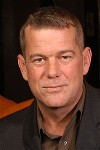READER RESPONSE -- Open Letter to David Kirby
Posted by Craig Westover | 10:50 AM |
 In a comment on this post, a reader asks my opinion of an open letter to Evidence of Harm author David Kirby that appears on the web site neurodiversity.com. I think it is very thoughtful and well written, certainly well documented letter.
In a comment on this post, a reader asks my opinion of an open letter to Evidence of Harm author David Kirby that appears on the web site neurodiversity.com. I think it is very thoughtful and well written, certainly well documented letter.That said, I also think it is misguided. While making a convincing case for her point of view, the letter writer misses the real issue.
The letter opens as follows:
Dear Mr. Kirby,The letter writer postulates a marketing strategy and then pulls quotes from Internet groups and from parent-leaders in the fight for recognition of the vaccine, mercury, autism connection to demonstrate how this strategy, which the letter writer characterizes as “undertaken with little regard for the fact that a significant proportion of families have no particular reason to suspect thimerosal poisoning as the cause of a family member's autism,” plays out.
I am the mother of two teenagers, one with a diagnosis of Asperger Syndrome. I am writing to you not to debate the mercury-autism causation hypothesis, but to express my concerns about the impact and implications of your efforts to promote your book, Evidence of Harm, and the efforts of members of the Evidence of Harm discussion list on Yahoo! — your ad hoc, grassroots publicity team.
While I appreciate your concerns about thimerosal and the concerns of parents who have legitimate reason to believe that their children have suffered from vaccine reactions, I would like to remind you that there are a great many parents who do not suspect vaccines as a cause of their children's autistic spectrum condition. I am one of those parents, and I can hardly express to you how offended I am by the aggressive media campaign being pursued by those who seek to hold pharmaceutical companies liable for the fact that their children are autistic, by attempting to persuade the general public (which encompasses voters and potential jurors) that most autistic people are victims of mercury poisoning.
First, in fairness, I have seen some professional promotions for Evidence of Harm that I felt exploited the government conspiracy angle. In one case I wrote to David Kirby (who I’ve gotten to know through covering this issue) about it, expressing my disapproval of it. I read the news groups, and I also receive a lot of email -- much of it similar in tone to that the letter writer describes. I discourage that, but it is there. The letter writer is correct.
Second, I have interviewed Kirby, listened to many of his presentations via the Internet and seen his presentation twice in the Twin Cities. In all cases without equivocation, Kirby has stated that he is presenting a theory, he believes it to have validity but it is not conclusive evidence, his goal is to motivate research to arrive at a conclusive answer -- something that was not happening before the book was released. In response to a question in Minneapolis, Kirby discouraged “conspiracy think.”
Where I think the letter writer goes astray is by focusing on militant comments, as unfortunate as they are, she misses the larger question “Should a journalist (or anyone else) raise an issue when there is legitimate cause for concern that some people will abuse the idea and that the idea may cause unnecessary worry and harm -- in this case the risk of diverting autism and vaccine research funds, causing people to withhold vaccinations from their children, creating false hope in parents of autistic children.

That’s the real issue. From interviewing David Kirby, I know that he wrestled with it during the writing of Evidence of Harm. I wrestled with it before publishing my columns on this issue. I’ve received the same criticism from no less than Dr. Harry Hull of the Minnesota Department of Health, who accused me of doing a “disservice to the public.”
I do not believe that to be the case.
Jumping into a sensational subject for the sake of sensationalism is wrong. But if one is truly “objective,” that is one looks at all the evidence and follows where the evidence leads, then one is, I believe, obligated to report one’s judgment, continue to investigate, and if proven wrong, accept the consequences of one’s actions -- just as one would have to accept the consequences of failure to act.
In essence that decision process is what caused the vaccine problem -- if it exists -- in the first place.
People can commit two kinds of sins -- sins of omission and sins of commission. A sin of commission is where a person acts on an assumption and it turns out to be wrong. Everybody can see the mistake after the fact. The person making the mistake, rightly or wrongly assumes all the blame. In a sin of omission, a person doesn’t act when they should. Bad things happen, but usually they are distanced from the non-action in time and space and the blame is seldom traced back to its source.
In the vaccine issue, for the most part, good people presented with “evidence of harm” from vaccines committed sins of omission. Had they acted on that evidence and been wrong, they visibly would have been responsible for all the harm caused by shutting down or curtailing a proven vaccination program. They chose not to take that risk; the result may be thousands of damaged kids today, but blame will never come back to the majority of people that simply did not act.
David Kirby faced the same decision. His research led him to the conclusion that vaccines and autism might have a connection. He could have written a “balanced” story on mercury, vaccines and autism -- written a “he said, she said” story that presented both sides of the issue and been done with it. But a balanced story is not what his research led him to.
Kirby’s research led him to the conclusion that there is serious “evidence of harm” from vaccines. It led him to the decision point of a risk-free sin of omission or the career-busting risk of a sin of commission -- going public with his story, knowing that it would cause some harm but believing in the greater good of many more children being medically treated and the prevention of many more children being unnecessarily damaged.
The letter writer makes good points, but given all that she said, from my own research, I believe that the dangers she cites, as real as they are, are not sufficient to hide a search for the truth. The sad reality is had government officials whose job it is to ensure vaccine safety quietly done that job, public debate would not be a problem. They did not do that.
I can’t speak for David Kirby, but in my mind, he has nothing to apologize for. Speaking for myself, I do not apologize for raising the issue locally. The evidence is what the evidence is, and to follow where it leads, accepting the consequences of one’s actions, is the only moral thing to do.

<< Home